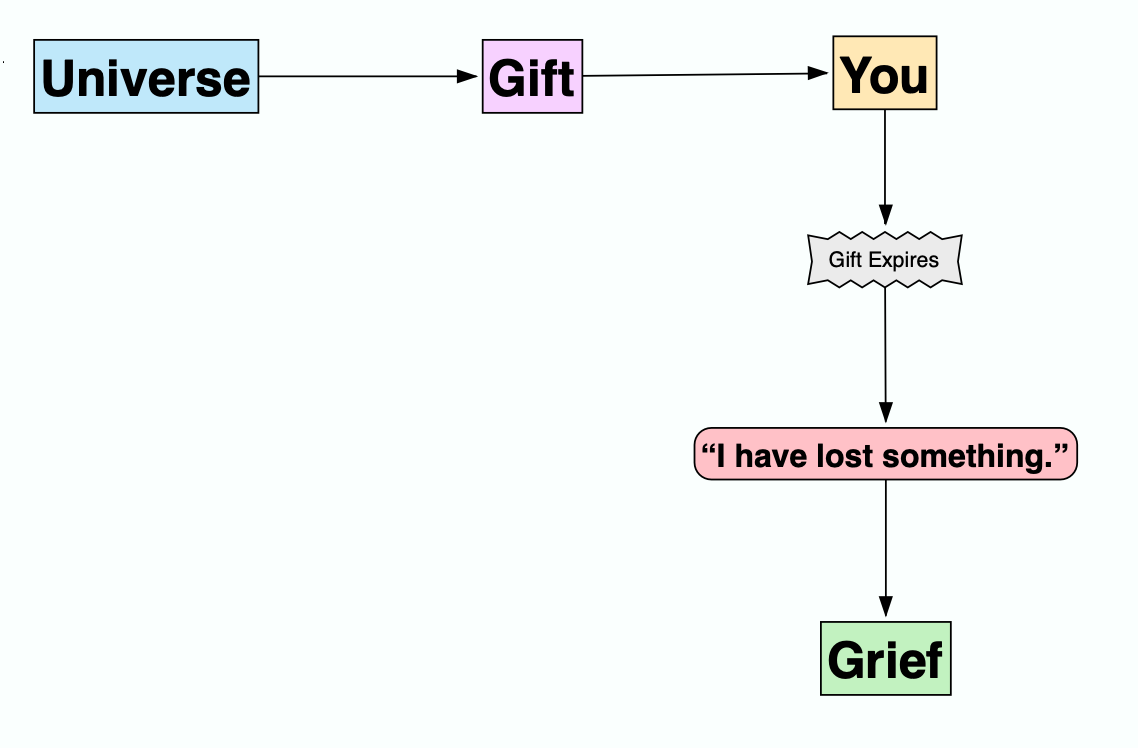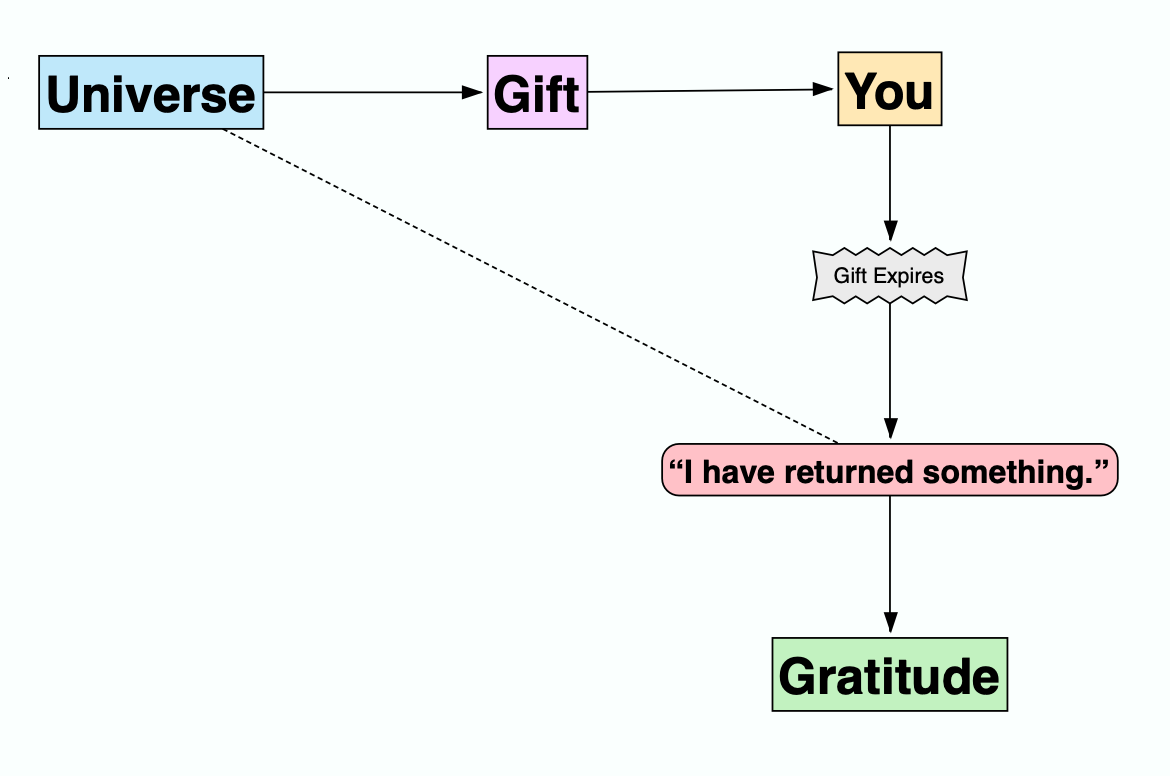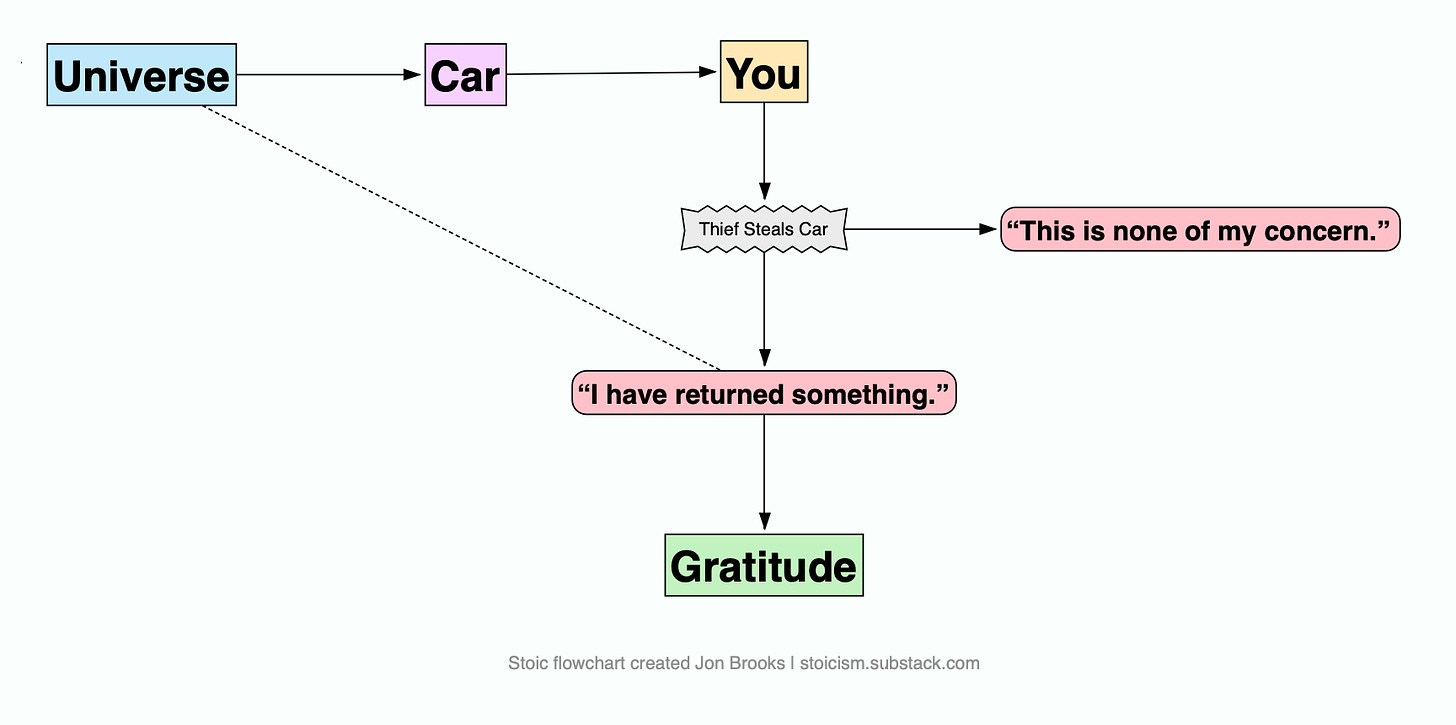Enchiridion Chapter 11 / 53
Where have all the best things in your life come from?
Did you create them from scratch?
Did you create all of your relationships from scratch?
How about your children, exactly how they are?
How about your material possessions?
The truth is, even though we have some agency life, so much of the things we enjoy are largely given to us by the Universe or fortune.
If you deeply recognise the facts that life is impermanent, ever-changing, and that everything we enjoy is a gift from the Universe, you can no longer suffer in the same way when things are taken from you.
In Chapter 11 of the Enchiridion, Epictetus walks us through the process of thinking more accurately about loss.
Never say the following sentence:
“I have lost something.”

Instead, replace the word “lost” with “returned” and say:
“I have returned something.”

- Did your pet die, and therefore you lost it? No, your pet was returned.
- Did your partner break up with you? No, they were returned.
- Did your car get stolen? No, it was returned.
At this point, you may say:
“I didn’t return it, it was taken from me by a thief!”
Why concern and stress yourself about the way something was given to you is returned back?

If something is given to you that you appreciate, enjoy it fully but also be mindful that nothing is yours to own for eternity.
Enjoy life’s blessings the way a weary traveller would enjoy a brief stay at a hotel.
For more elaboration on enjoying things without attachment, read chapter 7 from the handbook here.
ENCHIRIDION CHAPTER ELEVEN, EPICTETUS, TRANSLATION BY ROBERT DOBBIN:
“Under no circumstances ever say ‘I have lost something,’ only ‘I returned it.’ Did a child of yours die? No, it was returned. Your wife died? No, she was returned. ‘My land was confiscated.’ No, it too was returned.
‘But the person who took it was a thief.’
Why concern yourself with the means by which the original giver effects its return? As long as he entrusts it to you, look after it as something yours to enjoy only for a time – the way a traveller regards a hotel.”
